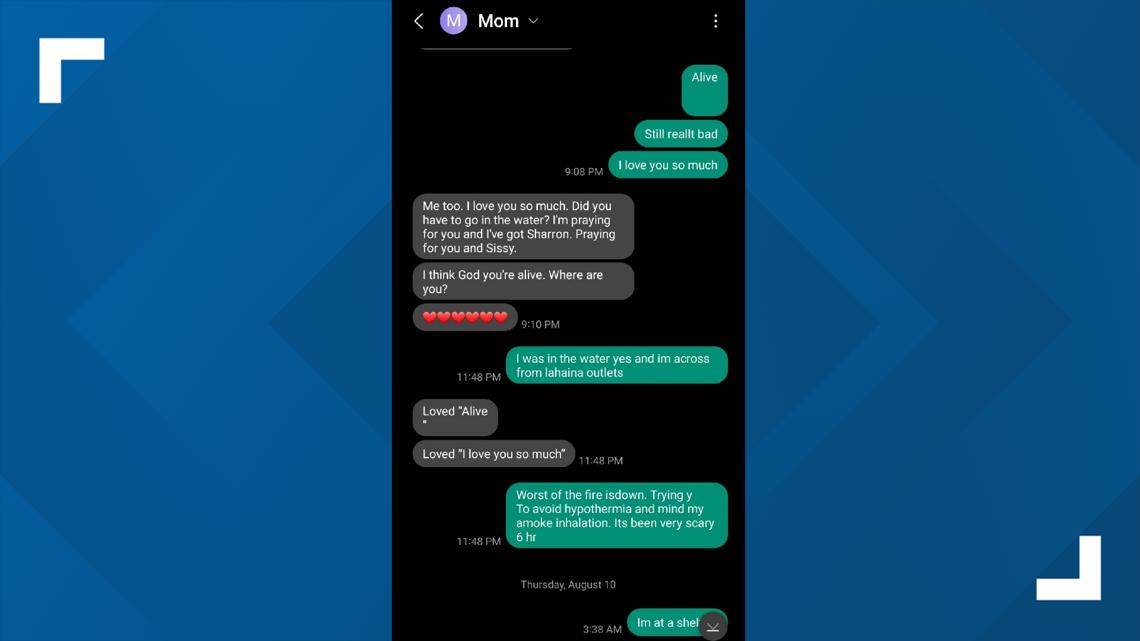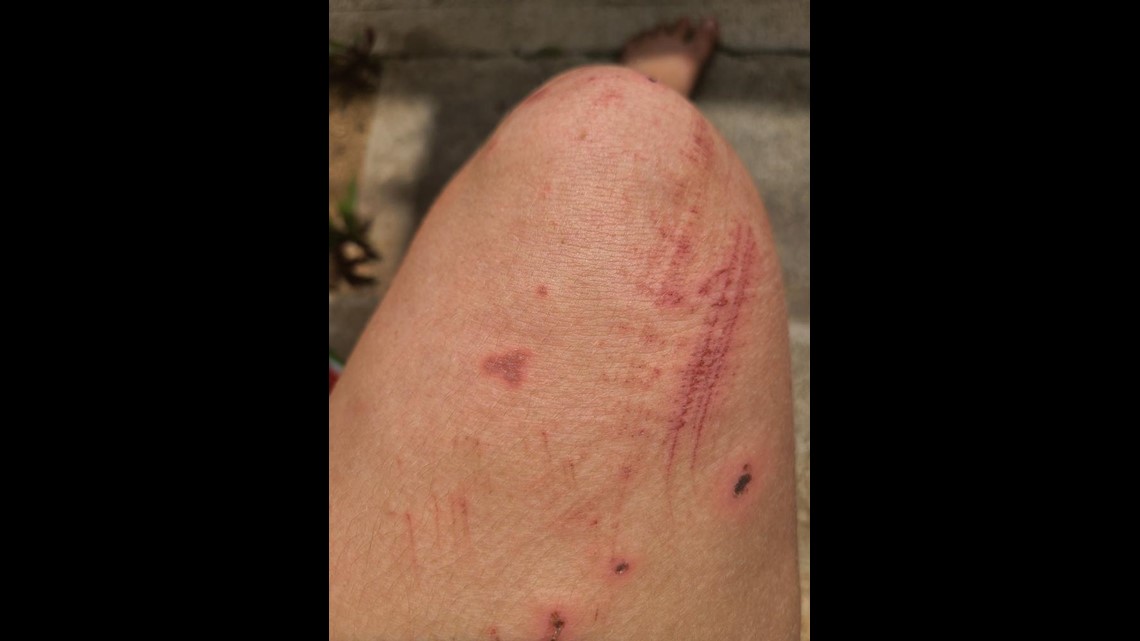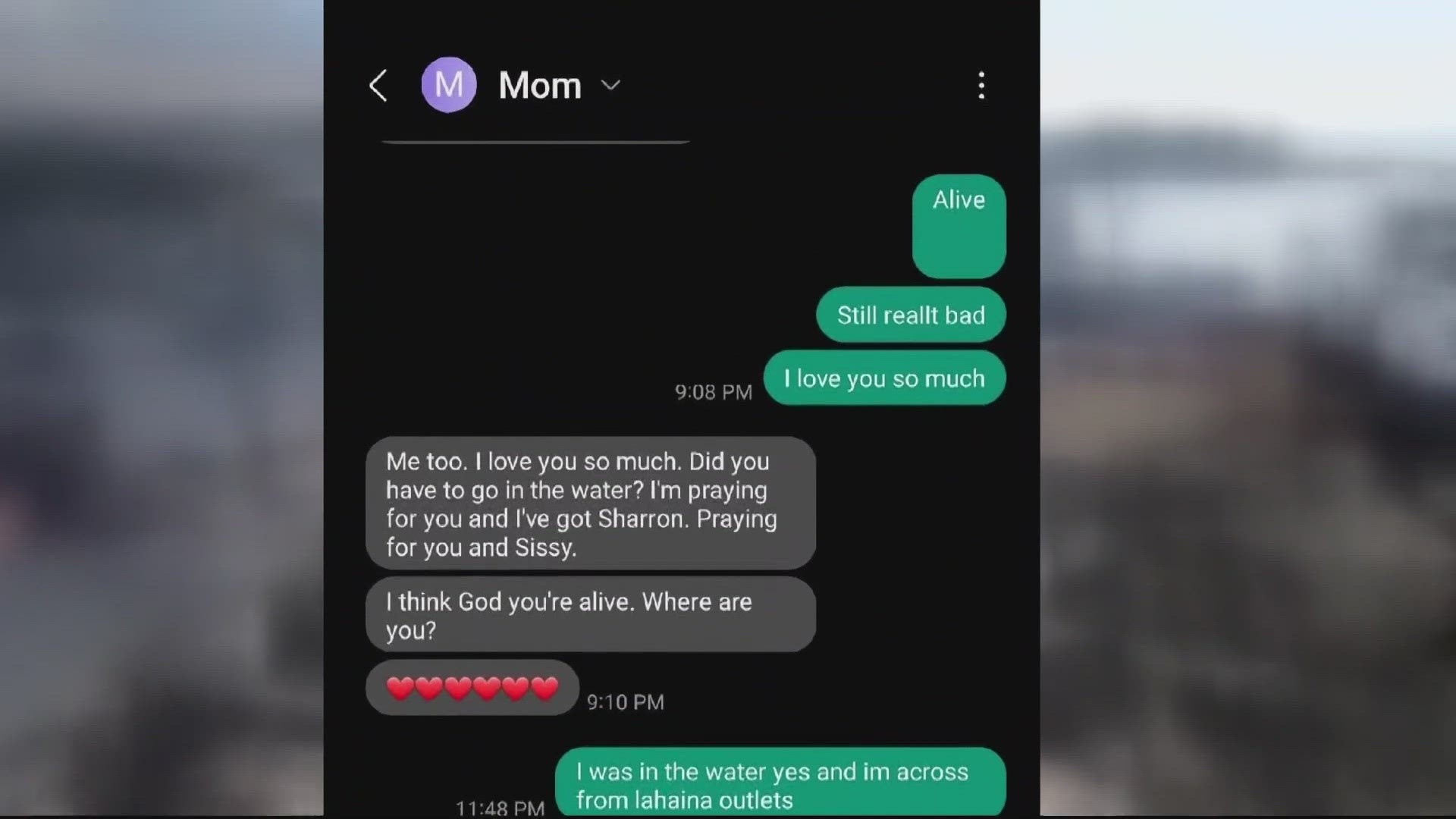BETHESDA, Md. — A 30-year-old Bethesda native who faced what could have been her final moments on Maui believes her life was saved by jumping into the ocean, and choosing to ride out a terrifying night in the water. Now, she wants others to hear her story in the hopes that it will encourage a giving spirit toward her devastated neighbors on the island.
Annelise Cochran says she was burned, and nearly drowned during the firestorm that flattened Lahaina. While she said it's likely she’ll have to return to Maryland at some point, she’s staying in a shelter for now in her adopted island home, hoping to help others.
The Walter Johnson High School alum's career as a marine mammal educator is what took her from Bethesda to Maui, where she works for the Pacific Whale Foundation. She was cut off from escape during the fire and assisted a neighbor toward the town's waterfront to take shelter on the shoreline.
“I think most of the night I just told myself that I was going to survive and I was just taking the right steps towards that," she said as she recalled sheltering in shallow water at the base of a concrete wall. "I collapsed on the ground not being able to breathe and was quite literally gasping for air. I would close my eyes and I would just see blue lights dancing around my field of vision. I couldn't really tell I was losing consciousness, but I knew I was losing time."


Cochran, and a neighbor she identified as Edna, are two of the 40 people who were rescued after taking shelter at the water’s edge in Lahaina’s harbor. She said the 8-hour ordeal included being burned by windblown embers, breathing potentially lethal smoke and enduring water temperatures cool enough to kill over time.
"The ocean comes with its own consequences too," Cochran said. "After about five hours of being soaking wet in the dark, I started to experience hypothermia or symptoms of it ... I actually ended up going back towards the fire a few times where I was burned."
Cochran says she believes some of the swimmers are among the missing.
"I ache for for the people that went much further out," she added as she described other people who swam toward deeper water to get away from smoke. "That's the sad part, because nobody even really knows who went into the water.”
Even so, Cochran said the decision to shelter at the shoreline was her only option.
"I think the water saved my life that night," she said. "Without it, I would have had no way to put out the embers that were falling on us. Sometimes I would feel my head kind of dip down and I would touch my lips to the surface of the ocean. You're trying to breathe very close to the water to try to get as much fresh air as we could. And it was like the feeling of the waves against my face. That was sort of what made me come to again. I realized if I had gotten more into the water I could drown."
Cochran was sending texts sent to her mom in Bethesda during the ordeal. The messages included short, desperate phrases like "alive," "still really bad" and "I love you so much."
An 86-year-old man near Cochran and her companion did not survive, Cochran said. She is still recovering from cuts, burns and smoke exposure while staying in a shelter on an unaffected area of Maui.


Cochran is now focused on relief efforts. Her employer, the Pacific Whale Foundation, lost one large boat but is offering others to assist recovery efforts.
“We have a fleet of boats that we typically use for whale watching and snorkeling," the marine educator said. "But we've been using these boats as a way to get more easily and quickly to Lahaina with big loads of supplies."
The foundations is accepting donations to support its efforts. Cochran said cash donations to the Red Cross or local Hawaiian organizations will do the most good.
“One thing that I've been encouraging everybody to do is if you're interested in donating or interested in helping is to do a little thing now, but then to do a little thing next month and then next year too, because we're going to be needing support for a really long time to come,” she said.
Cochran added that tourists continue to visit unaffected parts of Maui. She said that carefree photos posted to social media by visitors are emotionally devastating for survivors to look at. She recommends putting vacation plans on hold while sending donations instead.

